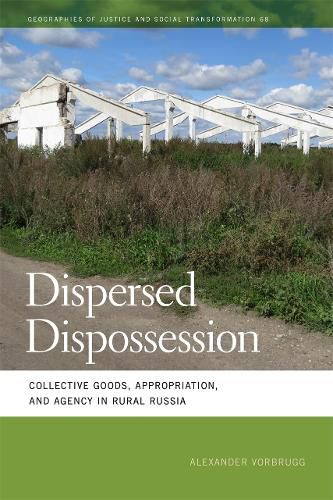Readings Newsletter
Become a Readings Member to make your shopping experience even easier.
Sign in or sign up for free!
You’re not far away from qualifying for FREE standard shipping within Australia
You’ve qualified for FREE standard shipping within Australia
The cart is loading…






This book provides a nuanced analysis of rural change in Russia during the 2010s, a crucial and formative phase marked by the consolidation of giant agricultural companies, large land deals, soaring exports, and spectacular failures of investment projects. It contextualizes complex and often ambivalent empirical realities within historical and political-economic frameworks.
Through extensive fieldwork, Alexander Vorbrugg gives rare insights into the operations of large agricultural companies and reveals how the deterioration of material infrastructures, social arrangements, government and local supports, and collective goods erode the conditions of rural inhabitants' well-being and agency. Vorbrugg introduces "dispersed dispossession," a concept that helps to relate gradual degradation to appropriation and agency. The concept captures losses that have been accumulated across Soviet, reform, and state-capitalist phases and stick to places, persons and potentialities. These losses are perpetuated and exploited by businesses and politicians and have profound implications for the conditions for resistance, shaping the range of conceivable alternatives. They are part of a history that is not fully past.
$9.00 standard shipping within Australia
FREE standard shipping within Australia for orders over $100.00
Express & International shipping calculated at checkout
This book provides a nuanced analysis of rural change in Russia during the 2010s, a crucial and formative phase marked by the consolidation of giant agricultural companies, large land deals, soaring exports, and spectacular failures of investment projects. It contextualizes complex and often ambivalent empirical realities within historical and political-economic frameworks.
Through extensive fieldwork, Alexander Vorbrugg gives rare insights into the operations of large agricultural companies and reveals how the deterioration of material infrastructures, social arrangements, government and local supports, and collective goods erode the conditions of rural inhabitants' well-being and agency. Vorbrugg introduces "dispersed dispossession," a concept that helps to relate gradual degradation to appropriation and agency. The concept captures losses that have been accumulated across Soviet, reform, and state-capitalist phases and stick to places, persons and potentialities. These losses are perpetuated and exploited by businesses and politicians and have profound implications for the conditions for resistance, shaping the range of conceivable alternatives. They are part of a history that is not fully past.